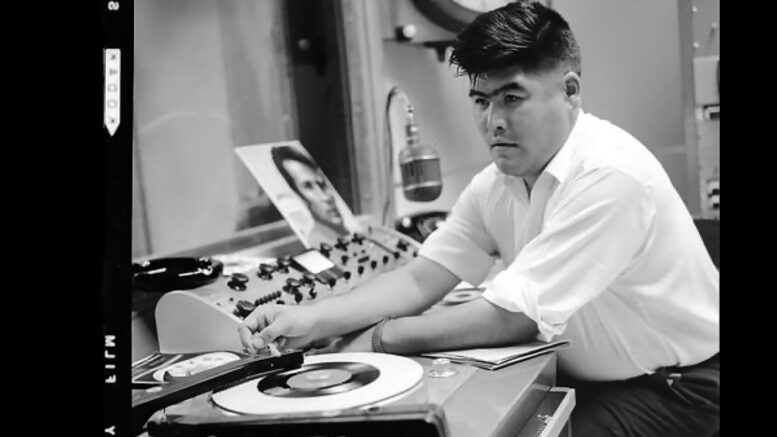Former NWT MP Walter (Wally) Firth passed away Saturday morning at 2:45 a.m. at his home in Victoria. He was 89.
Wally achieved many “firsts” in his lifetime:
• First Indigenous MP from the North, from 1972 to 1979.
• One of the first Indigenous managers of the Hudson’s Bay company in the NWT.
• First Indigenous announcer-operator at CBC in Inuvik.
• One of the first Indigenous people to achieve a private and commercial pilot licence.
• Instrumental in organizing the first formal Dene political organization — Native Brotherhood of the NWT — a forerunner to Dene Nation.
Ethel Blondin-Andrew was elected as the Liberal MP for the territory in 1988.
She knew of the older Wally since she was a child, as they had both attended Grollier Hall residential school in Inuvik.
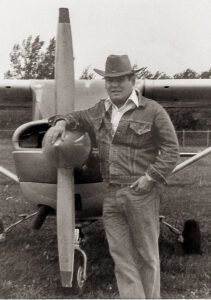 “When Wally became a member of parliament, you know, he was he was unrepentant about who he represented — and he did well for us,” she recalled. “He chose his spots and he was very vocal about things. People had so much regard for him. He was well respected.
“When Wally became a member of parliament, you know, he was he was unrepentant about who he represented — and he did well for us,” she recalled. “He chose his spots and he was very vocal about things. People had so much regard for him. He was well respected.
“I was up in Inuvik for six days, and I got to see a lot of people in the Delta. And when I left there yesterday, everybody was talking about Wally’s passing. You could see that people were saddened, but they were proud that they knew him.”
Born in Fort McPherson on January 25, 1935, his father was William Firth (1985 – 1980) and Mary Firth (1916-1986).
William Firth was married twice and had 13 children – Ben, Rosie, Angus, Frederick, Willie, Walter, Frank, Ann, Charlie, Ernest, John, Lawrence, Betty and two adopted children Judy and Peter (son of Ann).
His Grandfather was John Firth who came to the North in the 1870’s as a Hudson’s Bay Company (HBC) employee.
For 200 years the HBC had been sending young men from the Orkney Islands ins Scotland to Northern Canada.
John was sent to the HBC’s most remote trading post in on the Peel River post now known as Fort McPherson.
They put him in charge of the post in 1876, when he was only 23 years old. He married a local Gwich’in woman and learned to speak the Gwich’in language.
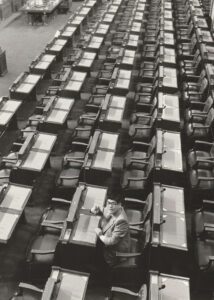 Wally left school at a young age and like his father and grandfather began working at the Hudson’s Bay in Fort McPherson, eventually working for “The Bay” in every Gwich’in community as well as Wrigley, working his way up to the managerial level. During this time, he received his Grade 10 through correspondence courses.
Wally left school at a young age and like his father and grandfather began working at the Hudson’s Bay in Fort McPherson, eventually working for “The Bay” in every Gwich’in community as well as Wrigley, working his way up to the managerial level. During this time, he received his Grade 10 through correspondence courses.
After a stint with the NWT Housing Corporation, Wally moved on to one of his great loves, radio, as the first Announcer Operator at the newly established CBC station CHAK in Inuvik.
For a short while he left radio, when he worked as Game Officer in Fort Smith, until he received a telegram from CBC in Ottawa asking him to return to CFYK in Yellowknife.
He quit CBC in 1968 to work full-time with the Indian-Eskimo Association of Canada (IEAC) as Executive Secretary in the North.
It was during this time he received his private and commercial pilot’s license, becoming one of the first Indigenous pilots in Canada.
Wally was central to the IEAC’s most famous and transformational projects.
With funding support from international charity OXFAM, an aircraft was bought second-hand in Inuvik to help facilitate communication between remote northern communities and southern Canada.
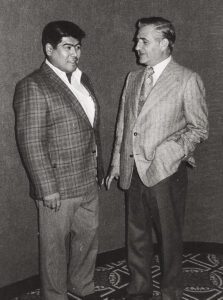 The plane was outfitted with skis, floats and a northern survival package.
The plane was outfitted with skis, floats and a northern survival package.
Wally was uniquely skilled to undertake this mission as both a seasoned pilot and experienced broadcaster.
The political ramifications of the “talking bird” became apparent early on.
Wally transported members of the National Indian Brotherhood and the Native Council of Canada and the plane accompanied a process of politicization that brought First Nations peoples closer to the centre of Canadian politics.
The plane helped transport native social and education workers to remote areas, conduct medical surveys, coordinate housing initiatives in remote areas, assess hunting grounds destroyed by forest fires, distribute educational films and evaluate timber reserves.
After a year of operation, the IEAC annual report marveled at the plane’s success for the communications, administrative, and political life of First Nations.
Among the significant developments in the NWT included the formation of the NWT non-status Indians Association and a collection of research material for the NWT Indian Brotherhood.
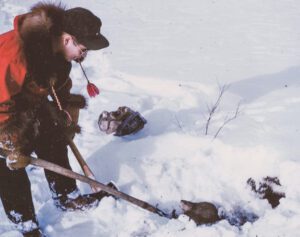 From this central role as organizer for IEAC, which was later known as the Canadian Association for the Support of Native Peoples (CASNP) he played a key foundational role in the creation of the Indian Brotherhood of the NWT. After its formation, he continued to help by assisting in its fund-raising efforts.
From this central role as organizer for IEAC, which was later known as the Canadian Association for the Support of Native Peoples (CASNP) he played a key foundational role in the creation of the Indian Brotherhood of the NWT. After its formation, he continued to help by assisting in its fund-raising efforts.
In 1972, Wally was approached to run as a federal candidate in the riding of the Northwest Territories, which at that time included both the NWT and Nunavut. He won that election and was a member of the NDP opposition until 1974 when the minority government was defeated.
Re-elected in the general election of 1974, Wally served as MP until the election was called in 1979 when he decided not to run for re-election.
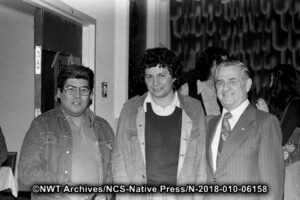
Wally Firth, (left) Georges Erasmus, and former NDP leader David Lewis at a 1979 federal election NDP campaign event at the Explorer Hotel in -Yellowknife. (NWT Archives/Native Communications Society fonds – Native Press photograph collection.)
Wally was the MP for the Western Arctic which encompassed both the NWT and Nunavut a riding that covering a staggering over three-million square-kilometres and 61 communities, the largest electoral district in the world.
Recognizing that a constituency office in one location would not meet the needs of such a large, wide-spaced and diverse riding, Wally decided to allocate his constituency budget to renting a plane in an attempt to fly to every community he represented annually.
James Ross is a former Tetlit Gwich’in Chief and business leader. He told CKLB that Wally’s hard work and varied talents made him
“He was the trailbreaker, the original trailbreaker, and he is what we refer to today as the unsung hero, because he didn’t want any publicity or he just wanted to be a private individual that just stuck to himself until he needed to play music or meet with people.
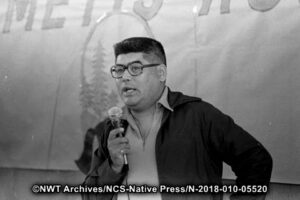 “And now that he’s passed, now we can do his story and pay the respected and a tribute to the competition’s because of Wally’s ground-breaking work as Indigenous people throughout Canada, we now live and benefit from that initial work.”
“And now that he’s passed, now we can do his story and pay the respected and a tribute to the competition’s because of Wally’s ground-breaking work as Indigenous people throughout Canada, we now live and benefit from that initial work.”
As only one of two Indigenous Members of Parliament during his two terms (along with Len Marchand from BC) Wally became a spokesperson for growing awareness and politicization of indigenous people and Canada and a struggle for their lands and rights.
He was instrumental during the Liberal minority government of getting the Berger Inquiry launched.
Dene National & AFN Regional Chief Gerald Antoine remembers Wally — who he lovingly calls ‘uncle’ — as a soft-spoken man whose lifetime of work greatly benefited Indigenous people.
“At that time, there was this discussion about the Mackenzie Valley Pipeline, and in his capacity as the NDP MP, he really got things going,” said Antoine. “So, there would be an inquiry into what things are being proposed … he really felt our people needed to have a say. I really appreciate the things that he was involved with, and how he pursued those things.”
His subsequent attempts to run for Parliament in 1980 for the NDP, 1997 as an Independent, and 2004 for the NDP in the Yukon were not successful and he retired from federal politics.
During his tenure as President of the NWT Metis Association Wally helped to foster a positive relationship with the Dene Nation.
His many interests kept him busy in retirement as photographer, ham radio operator, bible scholar, and musician.
He continued to give back to the people as fiddle teacher to the youth of Fort McPherson from his home in Victoria, BC until his passing on March 2, 2024.
— With archival information, plus submitted images, or from the NWT Archives. Caption information supplied as available.)
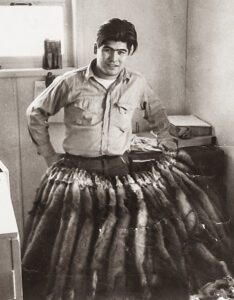
(EDITS: Extra photos and tributes from interviews added, Feb. 5)

